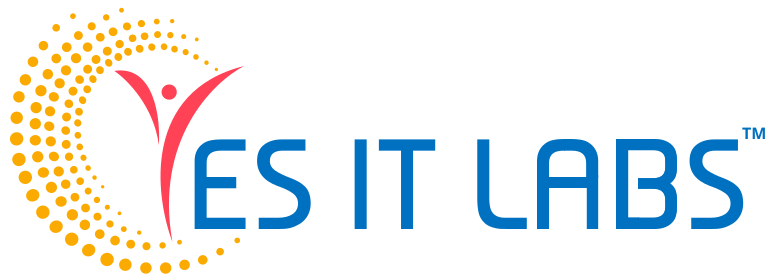Introduction:
Hey there, tech enthusiasts! In the ever-evolving world of web development, choosing the right technology for your project is crucial. As we step into 2024, the debate between PHP vs other technologies continues to be a hot topic. In this blog, we’ll explore the landscape, weighing the pros and cons, and helping you make an informed decision. So, let’s dive in!
The PHP Advantage:
PHP, which stands for Hypertext Preprocessor, has been a stalwart in web development for quite some time. One of its key advantages is its simplicity and ease of learning. Whether you’re a seasoned developer or looking to hire a PHP developer for the coding scene, PHP offers a gentle learning curve, making it an attractive choice for many.
Why PHP is better than other languages?
- Wide Adoption and Community Support: PHP boasts a massive community of developers worldwide. The extensive community support means a plethora of resources, libraries, and frameworks to facilitate development. This collective knowledge base can be a game-changer for developers facing challenges during a project.
- Cost-Effective Development: PHP is an open-source scripting language, meaning it comes with no licensing fees. This cost-effective nature makes it an excellent choice for startups and small businesses looking to develop robust web applications without breaking the bank.
- Versatility: PHP is incredibly versatile and can be embedded within HTML code. This seamless integration simplifies the development process, enabling developers to create dynamic and interactive web pages effortlessly.
- Scalability: PHP scales well with projects of varying sizes. Whether you’re building a small business website or a large-scale enterprise application, PHP can handle the workload, ensuring your project remains scalable and adaptable to growth.
Alternatives to PHP:
While PHP has its merits, it’s essential to consider alternative technologies that may better suit specific project requirements.
PHP vs Node JS
In the dynamic world of web development, the choice between PHP and Node.js often sparks debates among developers. PHP, a server-side scripting language, has long been a reliable choice for building dynamic web pages. On the other hand, Node.js, powered by JavaScript, has gained popularity for its event-driven, non-blocking architecture, making it a robust solution for real-time applications.
PHP, with its ease of use and a vast community, excels in traditional web development. It seamlessly integrates with databases and provides a solid foundation for building content-driven websites. However, when it comes to scalability and handling concurrent connections, Node.js takes the lead. Its asynchronous nature allows handling multiple requests simultaneously, making it ideal for applications requiring real-time updates, such as chat applications or online gaming platforms.
Ultimately, the choice between PHP and Node.js depends on the project’s specific requirements. If you prioritize simplicity and a vast ecosystem, PHP might be your go-to. For real-time, scalable applications with a focus on responsiveness, Node.js could be the perfect fit. Understanding the strengths of each will empower you to make an informed decision based on your development goals.
Node.js for Real-Time Applications: If your project demands real-time functionality, Node.js could be the answer. Its event-driven architecture makes it ideal for applications requiring instant updates and constant data exchange, such as messaging apps or online gaming platforms.
PHP vs Python
When it comes to the age-old debate of PHP vs Python in the realm of web development, each language brings its unique strengths to the table. PHP, a server-side scripting language, has long been synonymous with web development, praised for its simplicity, versatility, and seamless integration with databases. It is a go-to choice for content-driven websites and applications.
On the other hand, Python, a high-level programming language, has gained immense popularity, not just in web development but across various domains. Known for its readability and clean syntax, Python shines in scenarios where code readability and maintainability are paramount. It’s particularly strong in data analysis, machine learning, and artificial intelligence.
While PHP excels in traditional web development, Python’s strength lies in its versatility and adaptability to a wide array of applications. The decision between PHP and Python ultimately hinges on the project’s specific requirements. If your focus is on web development with simplicity and efficiency, PHP may be your preferred choice. However, for broader application scenarios and a robust ecosystem, Python might be the language that aligns seamlessly with your development goals.
Python for Machine Learning and AI: Python has gained popularity in recent years, especially in the realm of machine learning and artificial intelligence. If your project involves complex algorithms or data analysis, Python might be the right choice.
PHP vs Java
In the perpetual clash of PHP vs Java for web development, both languages bring distinctive features to the programming arena. PHP, a server-side scripting language, is lauded for its simplicity, making it an excellent choice for rapid development of dynamic web pages. It is widely embraced for its ease of integration with databases, making it a staple for content-focused websites.
On the other hand, Java, a versatile and object-oriented programming language, has entrenched itself as a powerhouse for enterprise-level applications. Known for its platform independence and strong security features, Java is the preferred language for building large-scale, robust systems. Its Write Once, Run Anywhere (WORA) philosophy adds to its appeal by allowing developers to deploy applications on various platforms without modification.
While PHP is celebrated for its agility in web development, Java’s strength lies in its scalability and reliability, making it a top choice for intricate, mission-critical projects. The decision between PHP and Java hinges on the specific requirements of the project. If you’re prioritizing rapid web development, PHP may be the go-to. However, for complex enterprise solutions demanding scalability and security, Java stands tall as the preferred language.
Java for Enterprise-Level Applications: Java remains a powerhouse for enterprise-level applications. Its platform independence and strong security features make it a go-to choice for large corporations and complex systems.
Conclusion:
In the end, the choice between PHP vs other technologies boils down to the specific needs of your project. If you’re looking for a robust, cost-effective solution with a large community and a wide range of resources, PHP might be the right fit. However, it’s crucial to assess your project’s unique requirements and consider alternative technologies that could offer specialized advantages.
So, whether you decide to go with PHP or explore other avenues, remember that the tech landscape is vast, and there’s always a solution tailored to your project’s needs.
And if you find yourself in need of expert guidance, don’t hesitate to reach out to a reputable PHP development company. Their skilled PHP web developers can provide the expertise and support you need to bring your vision to life in the dynamic world of web development. Happy coding!










